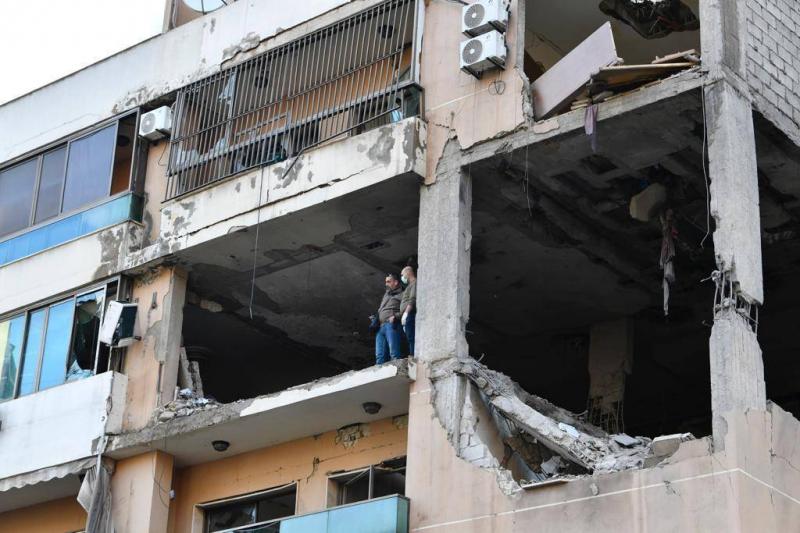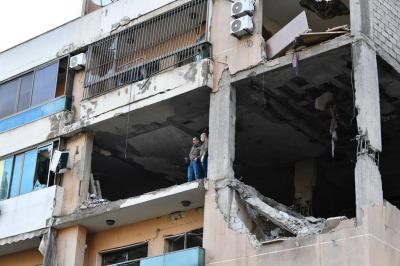A key name has dropped from Israel's wanted list following the assassination of Saleh Al-Arouri, Deputy Head of the Political Bureau of Hamas, in Lebanon. This may lead Palestinian leaders in exile to adopt greater caution and could hinder negotiations for further ceasefire agreements in Gaza and the release of hostages. Al-Arouri was killed in a drone strike in the southern suburbs of Beirut, a Hezbollah stronghold allied with Iran that supports Hamas, in an attack widely attributed to Israel, Hamas's arch-enemy.
Israel has neither confirmed nor denied involvement in the assassination, but the strike follows a month after the Israeli public broadcaster (Kan) aired a recording of the head of Israel's internal security service (Shin Bet), pledging to pursue Hamas in Lebanon, Turkey, and Qatar, even if it takes years. David Barnea, head of Israeli intelligence agency (Mossad), stated on Wednesday that he is committed to settling scores with Hamas, adding, "Let every Arab mother know that if her son was involved, directly or indirectly, in the October massacre, his blood is permissible."
Ashraf Abu al-Houl, editor of the Egyptian Al-Ahram newspaper and an expert on Palestinian affairs, noted that Al-Arouri's killing "could push Hamas to harden its position to avoid appearing as if it's conceding under pressure or threats of more assassinations." The assassination poses significant risks for the approximately two million Palestinians trying to survive Israeli bombardments in Gaza and for the Israeli hostages held by Hamas, which controls the coastal enclave and is allied with Iran like Hezbollah.
Hamas negotiators, including Al-Arouri, had been engaged in discussions with Israel, mediated by Qatar, for a potential ceasefire in the war, with the possibility of releasing more Israeli hostages. A source familiar with the negotiations indicated that both sides held discussions with Qatari mediators last week regarding the ceasefire and hostages, suggesting that the strike against Al-Arouri occurred during the final stages of preparation. Analysts suggest that security concerns may complicate matters moving forward.
Muhannad al-Haj Ali, deputy director of research at the Malcolm Kerr-Carriegi Center for the Middle East in Beirut, explained that Palestinian groups in Lebanon, where Hezbollah is a dominant player, had enjoyed a degree of security in recent years, stressing that Hamas needs to be more cautious now. He clarified that these groups were "content with the status quo of some calm and stability and the kind of deterrence represented by Hezbollah. This ended with the October 7 attack and the conflict in southern Lebanon, as events progress."
Al-Arouri (57) was the first high-ranking Hamas political leader to be assassinated since Israel vowed to eradicate the group following its attack on southern Israel on October 7, which resulted in the deaths of 1,200 people and the abduction of 240 hostages to Gaza. Analysts told Reuters that the loss of such a prominent figure could prompt Hamas to take a firmer stance against Israel, which is currently waging a devastating air and ground assault against the group. The potential change in Hamas's position remains unclear.
In the aftermath of Al-Arouri's assassination, Hamas officials responded with a defiant tone. Hossam Badran, a political leader in exile, declared, "We tell the criminal occupier that the battle is open between us and them." However, Sami Abu Zuhri, another Hamas leader, stated that Al-Arouri's death "will have repercussions," but affirmed that Hamas's position remains that if Israel halts its attacks entirely, the movement is willing to discuss "remaining issues."
The assassination of Al-Arouri may also escalate the war in Gaza into new territories in Lebanon. This was the first strike on Beirut following nearly three months of cross-border shelling between Hezbollah and Israel, which had been confined to southern Lebanon. Analysts noted that Hezbollah will likely face pressure to avenge its ally, especially since the assassination took place in the southern suburbs, the party's stronghold in Beirut.
Three Iranian sources closely linked to the religious establishment in Tehran revealed that Al-Arouri's killing has raised concerns among Islamic Republic leaders about the possibility that Israel might try to expand the conflict by dragging Tehran into it. One informed source stated, "His assassination shocked everyone in Tehran. But this doesn't mean that they will get directly involved in the conflict, although this seems to be the main goal of the Zionist regime's leaders."
However, within hours of the assassination, an Israeli official suggested that Israel seeks to avoid escalation while insisting that the country bears no responsibility for the attack. Speaking to CNBC, Mark Regev, an advisor to Israeli Prime Minister Benjamin Netanyahu, described the strike as "a targeted blow against Hamas leadership" rather than an attack on the Lebanese state or Hezbollah.
Regardless of its final impact on regional stability, Al-Arouri's assassination is likely to make other Hamas leaders more cautious and secretive. In Gaza, no Hamas leader has been seen since the attack on October 7, and many are believed to be hiding in deep underground tunnels. For decades, the long reach of the Israeli intelligence service Mossad has kept Palestinian opponents in hiding to avoid the risks of assassination.
In response to the assassination of 11 members of the Israeli Olympic team at the Munich Games in 1972, Israel conducted a campaign of assassinations against activists and organizers of the Palestinian Black September group over several years and in various countries. Hamas leader Khaled Mashal survived an assassination attempt by Mossad agents in Jordan in 1997. In 2010, suspected Israeli agents killed Hamas leader Mahmoud al-Mabhouh in a hotel in Dubai, which Israel neither confirmed nor denied.
In Lebanon, some Hamas officials have been seen in recent months making press statements. However, Al-Arouri and others involved in strategic affairs have avoided the limelight. It is expected that Hamas leaders Ismail Haniyeh and Khaled Mashal will remain in Turkey, a heavyweight regional power, and Qatar, an active diplomatic player, two countries that Israel would not want to antagonize. Turkey has repeatedly warned Israel against targeting Hamas members on its territory. Prior to Al-Arouri's murder, Turkish authorities arrested 34 individuals suspected of having ties to Mossad and allegedly planning to attack Palestinians living in Turkey.




